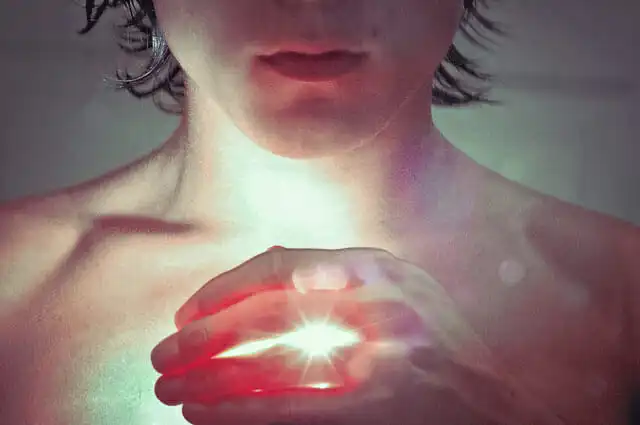The Art of the Heart in Chinese Medicine
Central to Classical Chinese Medical theory is the notion that the Heart is the regulator of the entire human being. Like the other Viscera in Chinese medicine, the notion of the Heart is not confined to its anatomical dimensions though it includes them. The physical heart is felt also along its meridian energetically and has a specific emotional and mental function. The heart houses the Shen, also translated as Spirits, which are said to give purpose and meaning to human life and to all life. This view of a spiritual heart at the core of life is not unique to ancient China but was also observed in ancient India. Consider the following quote, thousands of years old from the Upanishads:
“Radiant in light, yet invisible in the secret most place of the heart, the spirit is the supreme abode wherein dwell all that move and breathe and see, know this as all that is and all that is not and end of love longing beyond all understanding, the highest in all beings.”

The meaning in our lives comes from a life lived in relationship to the Heart, aware of what creates peace within one’s being and aware of what creates disorder in one’s life. The result of a life lived in accordance with the destiny of the innermost heart is felt as joy. Joy is the emotion of the heart. If we see in a patient that there is no joy, then we must address the heart to understand why. That which is peaceful, that which is compassionate, that which is meaning arises spontaneously from what the Chinese call the “void of the heart.” Though they use the words emptiness and void, those words don’t carry the accurate meaning of the Chinese character which implies a field of pure potentiality or a fullness brimming with consciousness. Emptiness simply implies the freedom inherent in the heart, for it is a place beyond the mind and is therefore serene and peaceful.
The fundamentals of Chinese Medical Theory give us various functional qualities of the heart and we must remember that this epistemology arises from Daoist observation, Confucian reflection and Buddhist experience. There are spiritual and subtle overtones to this way of knowing, though many of these insights are reduced or completely abandoned in modern Traditional Chinese Medicine or TCM. In the classics of Chinese medicine we learn that the heart is the “monarch” and is sovereign over all the other organ systems and over the entire being (physical/emotional/mental/subtle). It controls the blood, the blood vessels, and is in charge of circulating the blood through the vessels. The heart houses the shen or spirits and the shen’s presence radiates and shines from a person’s eyes and face. Interestingly the ancient Chinese asserted that the heart is at the center of perception itself whereas western science posits the brain to be the seat of perceptive ability. Clearly neuroscience has demonstrated that perception and intelligence can be irrevocably altered by brain damage, but up until recently the heart played no known role in either. Now research has found what has been called the “little brain” in the heart, and a major role in memory has been identified. Researchers have discovered that heart transplant recipients often experience the memories of the heart’s donor (See Dr. Paul P. Pearsall’s book: The Heart’s Code). This fascinating research correlates with the ancient Chinese observation that the heart plays a clear role in clarity of mind and good memory.
In most spiritual traditions around the world speech is regarded as a powerful force and aspirants are therefore advised to speak the truth of their hearts. The ancient Chinese also believed this and called the tongue the “sprout of the heart.”
The shen or spirits, that are said to be housed in the heart, leave only a clue as to their presence in the human being. In Hebrew this presence is called Shekinah and is perceived as a radiance illuminating the face and the eyes. And so we look at our patients and assess their shen by their eyes. There is another type of brilliance that emanates from the eyes when a person’s shen is disturbed, but that is usually classified as a type of “possession” and can be corroborated by the taking the pulse. The shen informs the entire living being and the first role of an acupuncturist is to restore a person’s shen. We must facilitate access to the innermost heart so a patient can remember their unique destiny and feel the subtle joy of participating in their life purpose and calling. When the shen is restored there is joy in life.
Where does the shen that is housed in the heart come from? We are left only clues in the Lingshu, the classical bible of acupuncture theory. And clues, or more like footprints, are all there are of this great mystery because shen and the spirits arise from the incomprehensible void….the infinite empty light of the heart. The hinge or pivot or doorway that opens this void into the world and that allows its presence as a certain shine or radiance to be felt is the Heart Sovereign. So if one is in touch with the mystery of their being, with the great dao, with the silence and source of their being that is accessed from the gate of the heart, we see this as a subtle joy (the emotion of the heart) emanating from their eyes. That is the goal of real acupuncture and the goal of life, to live in accord with the radiant fullness and freedom that issues spontaneously from the never ending wellspring of the heart, whatever may befall our physical forms.
Ultimately this means we are not the body, and knowing this without a doubt leads to freedom…or what the ancient perennial wisdom traditions of the east call enlightenment…the light of the heart.
@ James Whittle M.S. L.Ac. All rights reserved.
Email: james@blueridgeclinic.com
Call: 828-254-4405 for a Free Consultation
